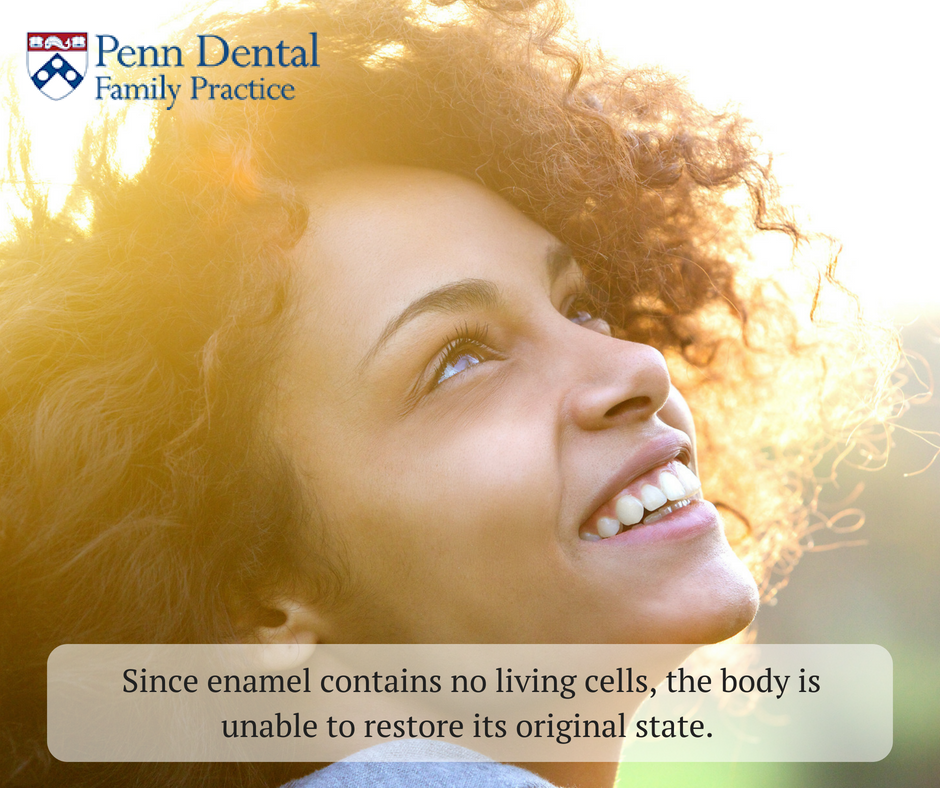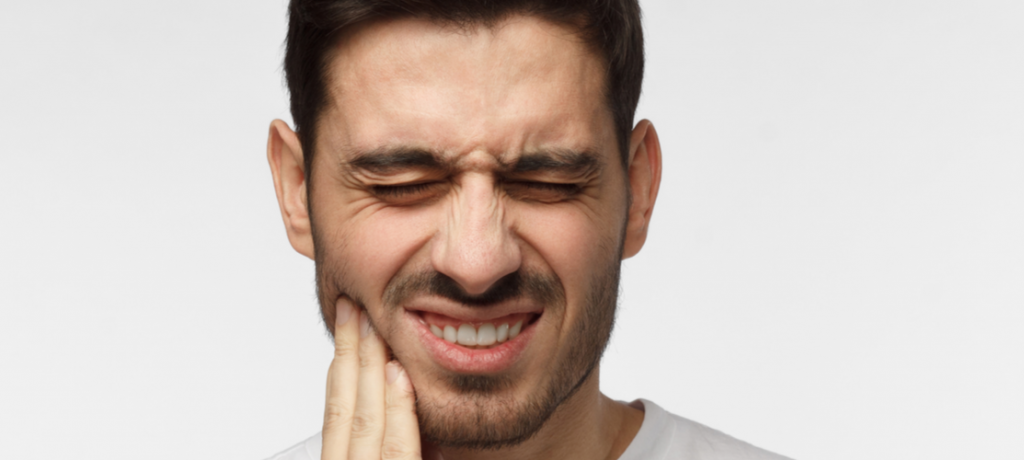Stop enamel loss in its tracks and strengthen teeth naturally.
Tooth wear is increasingly common in the general population, simply because more people are retaining their natural teeth as they grow older.
Worn teeth is a term referring to the progressive loss of enamel from causes other than dental trauma or decay. Here are a few symptoms of natural teeth wear:
- Sensitivity. If you experience a twinge whenever you eat sweets or certain hot or cold foods, this could indicate early-stage enamel erosion.
- Discoloration. With progressive erosion, the yellow dentin under the enamel becomes more exposed.
- Cracks/chips. The edges of teeth become more rough, irregularly shaped, and jagged.
- Pain. In later stages of enamel erosion, teeth will become highly sensitive. You may experience much sharper of pain compared to early-stage enamel erosion.
- Indentation. Due to greater wear and tear, the surface of the teeth appears indented.
Tooth wear classification
Preventive measures are crucial to halting enamel loss because tooth enamel is not regenerative. Unlike a broken bone, teeth do not contain enough living cells to restore themselves. There are four major causes of worn-down teeth:
- Abrasion. This is physical wear on the surface of the tooth as a result of brushing too hard, flossing improperly, biting down on hard objects, and chewing tobacco.
- Attrition. Tooth-to-tooth friction is caused by clenching or grinding teeth, such as bruxism. Oftentimes, bruxism occurs involuntarily during sleep and patients are only made aware of their condition after visiting their dentists.
- Corrosion. This is a chemical process in which acidic content hits the surface of the tooth repeatedly, causing erosion. Acid erosion can occur from frequently drinking soda , taking vitamin C tablets, conditions such as GERD, and frequent vomiting from alcoholism or bulimia.
- Abfraction. This results from stress fractures in the tooth.
Research shows how saliva plays a central role in protecting the teeth against acids. Among people between the ages of 18 and 30, erosion is strongly associated with the consumption of acidic foods and drinks. Some people are at a higher risk for erosion as a result of systemic conditions causing salivary dysfunction or medications that lead to dry mouth.
The effects of tooth wear can be serious.
The effects of worn teeth range from superficial to serious, depending on how far the wear has advanced. If you already see signs of wear, you should be conscious of the dangers:
 Dental pain: Constant wearing on the teeth will remove the protective layer of enamel, exposing nerves.
Dental pain: Constant wearing on the teeth will remove the protective layer of enamel, exposing nerves. - Dental decay: It’s easier for destructive bacteria to take up residence in teeth that are indented from erosion.
- Tooth fractures: Weakened teeth are much more vulnerable to fractures.
- Decreased function: The pain associated with worn teeth can make it more difficult and painful to eat certain foods.
- Tooth loss: After years of grinding or erosive activity, tooth wear can lead to tooth loss.
A few tips to avoid enamel loss at home
If you’re wondering how to stop grinding teeth, dry mouth, or other conditions that put you at risk for enamel loss, it’s important to first talk to your dentist. Remember, the effects of worn teeth compound over the years, so the sooner you visit the dentist, the better for you. These tips are for people who experience enamel loss primarily as a result of corrosion:
- Eliminate foods such as carbonated sodas, lemons, and other citrus fruits and juices as much as possible from your diet. Rinse your mouth with water after consuming acidic foods/drinks.
- Use a straw when you do drink acidic drinks, as this pushes the liquid to the back of your mouth.
- Chew sugar-free gum between meals if you have low saliva production. Chewing gum can boost saliva by a factor of 10. Be sure to pick sugar-free gum containing xylitol, which reduces acids.
- Boost your water intake. Staying properly hydrated is the easiest way to reduce symptoms of dry mouth. Setting alarms throughout your day can be a helpful reminder to drink enough water.
- Use fluoride toothpaste to strengthen teeth naturally.
- Ask your dentist if sealants might help protect your teeth from further erosion and decay.
Get the Advice of a Professional
Tooth wear is not a condition to be taken lightly. If you or a loved one have noticed signs of tooth wear, it’s time to take action before the effects of erosion lead to more serious problems. Because erosion is irreversible, it’s best to take preventive measures whenever possible.
If you’d like to schedule an appointment with one of our Penn Dental Family Practice doctors, please call our office at 215-898-PDFP (7337) as soon as possible.

 Dental pain: Constant wearing on the teeth will remove the protective layer of enamel, exposing nerves.
Dental pain: Constant wearing on the teeth will remove the protective layer of enamel, exposing nerves.